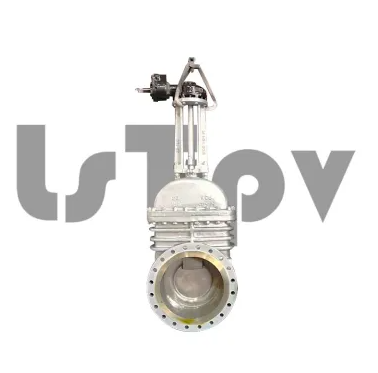What are gate valves used in industry?
In the intricate web of industrial processes, where precision, efficiency, and safety are paramount, gate valves emerge as essential components that facilitate the smooth operation of various systems. These valves, designed to control the flow of liquids and gases, find their applications across diverse industries, ranging from oil and gas to water treatment, manufacturing, and more. In this article, we delve into the world of gate valves, exploring their construction, mechanisms, and the manifold industries they serve.
Industrial Gate Valves: Anatomy and Mechanism
A gate valve, at its core, is a linear motion valve used to regulate the flow of fluids by employing a sliding gate or wedge mechanism. This gate, typically a flat or wedge-shaped disc, moves perpendicular to the flow of the fluid, either fully open or completely closed. The mechanism is simple yet effective, allowing for a tight seal and minimal pressure loss when the valve is fully closed.
The construction of a gate valve comprises several key components:
Body: The main outer casing of the valve that contains all internal parts and connects to the pipeline.
Bonnet: The cover that encases the stem and the actuating mechanism. It provides access for maintenance and repairs.
Gate/Wedge: The sliding component that either obstructs or permits the flow of the fluid.
Stem: The rod-like structure that connects the actuator (handle, handwheel, motor, etc.) to the gate, allowing for its movement.
Seat: The surface against which the gate seals to stop the flow.
Packing: The material around the stem that prevents leakage along its axis.
Actuator: The mechanism that controls the movement of the gate. It can be manual (hand-operated), electric, pneumatic, or hydraulic.
Applications in Various Industries
The gate valve's versatile design and dependable sealing mechanism make it an invaluable asset in a multitude of industries:
Oil and Gas Industry: In the exploration, production, refining, and transportation of oil and natural gas, gate valves are utilized to control the flow of these valuable resources. Their ability to function effectively even in high-pressure and high-temperature environments makes them essential for maintaining safety and operational efficiency.
Water Treatment and Distribution: Water treatment plants and distribution systems rely on gate valves to manage the flow of water. These valves ensure precise control over the water supply, aiding in maintaining water quality and preventing leaks or bursts in pipelines.
Power Generation: Whether in fossil fuel or nuclear power plants, gate valves play a crucial role in controlling the flow of steam or cooling water through various stages of power generation. Their robust construction is especially suited for handling high-pressure steam.
Chemical Processing: Chemical manufacturing processes involve the movement of hazardous and corrosive fluids. Gate valves' capability to provide a tight seal helps prevent leaks and ensures that potentially dangerous substances are contained within the intended pathways.
Mining Industry: The extraction of minerals and metals demands rigorous control over slurry and other abrasive materials. Gate valves, with their ability to handle such challenging substances, are widely used in mining operations.
Manufacturing and Construction: Many manufacturing processes require precise regulation of fluid flow, and gate valves offer the necessary control. Additionally, in construction, these valves are used in HVAC systems, plumbing, and fire protection networks.
Marine and Shipbuilding: Gate valves find their place in shipbuilding and marine applications, where they manage water flow, ballast systems, and even wastewater treatment on vessels.
Advantages and Considerations
The deployment of gate valves in various industries is not without its considerations:
Advantages:
Full Flow Opening/Closing: Gate valves offer minimal resistance when fully open, allowing for unobstructed flow.
Excellent Sealing: The design of gate valves ensures a tight seal, preventing leakage even at high pressures.
Versatility: Gate valves are available in various sizes and materials, suitable for different operating conditions and fluids.
Durability: Their robust construction makes them suitable for demanding environments and prolonged use.
Considerations:
Slow Operation: The linear motion mechanism of gate valves can result in relatively slower opening and closing times compared to other valve types.
Fluid Erosion: In partially open positions, the fluid can create erosion on the gate and seat, potentially affecting the valve's sealing capability over time.
Throttling Limitation: While gate valves are designed for full-open or full-closed positions, using them for flow regulation in intermediate positions can cause damage and impair their sealing performance.
Maintenance: Depending on the application, gate valves might require more frequent maintenance due to their potential vulnerability to fluid erosion and accumulation.
In conclusion, gate valves stand as indispensable components in the machinery of modern industries. Their ability to effectively control the flow of fluids while maintaining a secure seal renders them a critical asset across a wide array of applications. From the towering structures of power plants to the intricate pipelines of chemical processing, these valves contribute to the efficiency, safety, and reliability of industrial operations. As technology advances, gate valves continue to evolve, addressing their limitations and enhancing their performance, further solidifying their significance in the industrial landscape.
649
0
0



Comments
All Comments (0)